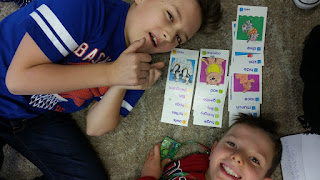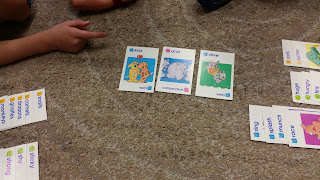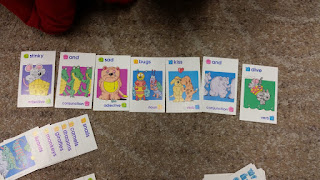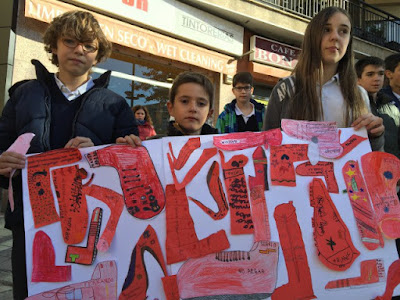As kids naturally create sentences in their L1, knowing nothing about the metalanguage, it is difficult to explain to them how to create a sentence correctly.
Silly sentences seem to be a great idea and a lot of fun and laughter.
children get cards with different parts of a sentence. They have to create correct sentences. For the teacher; the process itself is the most important aspect of the game. Kids love it because they come up with amazingly funny ideas which also make them remember new vocabulary and word order.
You can buy a set or prepare it with students too.
Each card given equals 2 points. The longer the sentence, the more points a team gets. Here, of course, everyone is the winner!


































